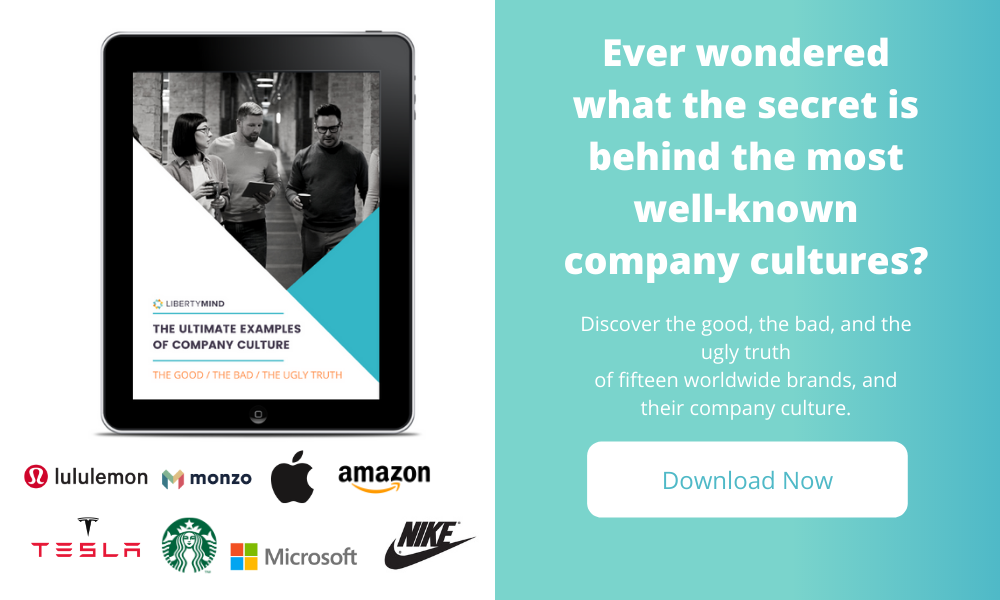Take a Page from Patagonia's Handbook - You Could Learn Something
With global warming no longer being an abstract concept but a reality, phrases like “going green”, “sustainability” and “environmentally friendly” have become buzzwords on almost every company’s about us page. Very few companies really live up to what they say in this regard and when push comes to shove, they might even be guilty of giving up on the cause if it costs them their profit.
Not Patagonia.
Recently, the company has received a lot of media attention for doing what they say will do and creating a company and culture many organisations can learn from.

Where did it all start?
As a teenager, Yvon Chouinard could never have imagined where his newfound love for climbing would lead him. As an environmentally conscious climber, he started noticing how his climbing gear would damage the rock faces and he wanted to do something to prevent this. He started acquiring special metal pistons to use to protect the rocks, which he later started selling. Once he became aware of the impact on the environment, he looked for more ways to protect nature and he hasn’t stopped since.
The small effort he took at the time to look after the environment is what ended up being the driving force behind the Patagonia we know today. In 1973, Patagonia was started as an outdoor clothing brand and already, the ethos rang clear – “Build the best product, cause no unnecessary harm, use business to inspire and implement solutions to the environmental crisis.”
Any company can write up the world’s best ethos and think that its job is done. Not Patagonia, they walk the talk. Not only by looking after the environment, but also by looking after their employees.

What is Patagonia’s Company Culture?
48 years since its inception, Patagonia is not only known for the high-quality fleeces and hoodies but also its signature product that has brought the company under the spotlight many times – its culture. This is one of the reasons Patagonia has proudly made it to Fortune’s list of Best places to work.
As much as people love all the benefits a company can offer, they also want to feel connected to a cause. People want and need meaningful work and Patagonia gives its employees just that.
Patagonia’s culture is so impressive that its founder, Yvon Chouinard wrote an employee handbook titled “Let My People Go Surfing”. Surfing? Yes, Patagonians surf. During work hours.
The book has since been published and become a worldwide bestseller. In my humble opinion the handbook turned book, is such a call to their mission at Patagonia, that it’s a book I will often recommend and even gift to my clients.
Patagonia’s culture comes to life by creating a company where employees regard themselves as the ultimate customers for the products that they produce. Chouinard wanted to build a company whose principal concern was taking care of employees, customers and above all, the planet. And he did just that by building a company worth $3 billion with over 3000 employees globally. They’re known for placing an emphasis on company culture and putting their employee’s health and safety first by offering attractive benefits and perks like onsite yoga and fitness, onsite childcare, organic cafes, full health coverage and much more.

Let’s take a look at the aspects making Patagonia stand out . . .
Nurturing their company culture is important
The culture at Patagonia has never been traditional and this can be seen in the way that they manage their workplaces.
Patagonia offers flexible working, allowing employees to take some time off when they need it, even during the day, to do things that make them happy, like going surfing. “If the swell is up, it’s not unusual for there to be a lot of wetsuits and towels hanging around the building here,” says Chief HR Office Dean Carter.
Patagonia hires people who love nature and the outdoors, so they don’t believe in keeping their employees locked up in buildings all day. Instead, they encourage you to go out and lead an active and fulfilling lifestyle.
This is clearly a policy that resonates with employees and leads to a high retention rate. There aren’t many jobs that open up at Patagonia, and when it does, they receive over 9,000 applicants. Clearly people want in.
They are family friendly
In 1984, Patagonia opened an onsite childcare centre, which is still one of the favoured benefits for employees. Many companies might say that they value family over everything but only 9% of companies offer onsite childcare facilities in the US.
At Patagonia, they take it a step further. If a breastfeeding mother needs to go on a business trip, the company pays for the mother, baby, and a nanny to travel for that trip. For over 30 years, this has been a key driver to the 100% retention for its working mothers.
Patagonia views their childcare policy as a fundamental benefit that the company will never abandon. They value high-quality early childhood education which is why the centres have bilingual programs and teachers who are trained in child development. Making sure they can offer their employees and their children only the best.
They work on flexibility
The company brings a new meaning to flexibility as they rolled out a 9/80 work schedule that gives employees a three-day weekend every other week. Their employees work nine hours a day from Monday through Thursday and eight hours on alternating Fridays. They get every second Friday off.
This means that they’re able to have more time and better relationships with their spouse and children as well as manage their personal time better to run errands like grocery shopping or even schedule doctor’s appointments.
One less working day also means that the company benefits from a lower ecological footprint as they reduce their energy use on days when the office is closed.
They approach meetings differently
Scheduling meetings during lunchtime is forbidden because most people are out doing yoga or going for a jog. But the company does have regular town hall meetings to share what’s going on and give employees visibility.
The physical environment is flexible and open. Not even the founder has a private office as everyone works in open rooms with no separations.
Further supporting the sentiment that family is important – meetings are family-friendly. It’s not unusual for kids to join a meeting unexpectedly, or to see women nursing in meetings, and no one bats an eye.
Time is valued at Patagonia so they don’t encourage futile meetings that don’t have measurable outcomes.

They create a feedback culture that works both ways
Feedback is important as they acknowledge this is what they need to continuously learn and improve their business operations. But the company puts an emphasis on asking employees for feedback, rather than providing feedback to them.
They’re of the opinion that giving unsolicited feedback to employees doesn’t warrant any action. But when employees are asked to provide feedback first, they’re also more likely to request feedback from other people. So employees are more comfortable speaking up about their concerns and needs within the organisation.
They hire with culture in mind
They focus on having a “culture add” vs a “culture fit”. Patagonia is highly unconventional – in just about everything. So when the talent acquisition team at Patagonia reads a resume, they read them from the bottom up. Carter explains that by doing this, they’re first able to understand a candidate’s interests and hobbies to know whether they share a passion for the outdoors.
The company doesn’t want to hire employees who are identical in their interests and experiences, but people who will bring new skills and perspectives to the work that they do.

How Patagonia embody their core values
Build the best product
Their criteria for the best product rests on function, repairability and durability.
They make their utmost effort to limit ecological impacts by creating goods that last for generations or can be recycled.
Do they really do this? Yes! Patagonia has a “Worn Wear” program, through which they take back 100% of their products to be recycled or repaired. In 2015, they even launched a cross-country mobile repair truck, encouraging customers to bring in items of clothing that needed to be repaired, not only for Patagonia branded clothing. This leads people to think about repairing their clothing before replacing it, echoing the objective of the company – to lessen their environmental footprint.
Cause no unnecessary harm
The company recognises that their business activity from dyeing shirts, to having to power their stores with electricity is part of the problem. But they aim to do everything they can to change their business practices and share what they have learned, to help improve.
This was evident from the beginning of Patagonia, born out of the need for Yvon to not cause any damage to the environment while he was practicing rock climbing. Today this value is still alive as Patagonia is constantly adapting their business practices to do less harm.
Use business to protect nature
Patagonia states that the challenges faced as a society require leadership. Once they identify a problem, they act. This is evident in all operations surrounding Patagonia. They’ve never rested on their laurels when it comes to doing their part for the environment. One of their ongoing projects is to give 1% of sales to the planet. So as the business grows, so does their contribution to protecting the planet.
On many occasions you will find Patagonia supporting grass roots environmental causes, as well as using their advertising budget to campaign for the environment.
Not bound by convention
Their success lies in developing new ways to do things. One of the ways that stand out is how the company achieves this by employing people from all walks of life. The employees are further given tools to exceed expectations and succeed in their professional careers and also their personal lives.

Lessons we can take from Patagonia
Patagonia’s dedication to their people and company culture should be used as an example for all companies. It is easy for any company to list their mission statement, but not every company still lives up to it 40 years down the line. Patagonia has an employee turnover of about 4% each year, compared to an 18% national average. This shows that focusing on building a culture where everyone is purpose-driven has an underlying impact on the growth of the company.
Company culture is important. Offering free coffee and ping pong tables is not going to cut it when you want to build a successful company. Create a culture where people can thrive, personally and professionally. Allowing your team to stay true to who they are but also supporting a mission they believe in will make them feel like they’re working towards something great.
Take the time to listen. Patagonia encourages open communication where the CEO can speak directly to anyone that needs to get the job done. Everyone is encouraged to speak up and challenge what’s happening. This gives employees a platform to speak and be heard. There’s a genuine concern to make sure a big majority of people are weighing in. Supporting all the initiatives in the world won’t help if they’re not what your employees need and want. Hear them out and work from there.
Show that you care. People need to know that you care about what they do outside of the business. Are they coping mentally and physically, do they need medical support or better life-work balance? Do they need help with their families or child-care? People can only give you their best if they are at their best. Once they are taken care of, they help drive your business to unmatched levels of success.








